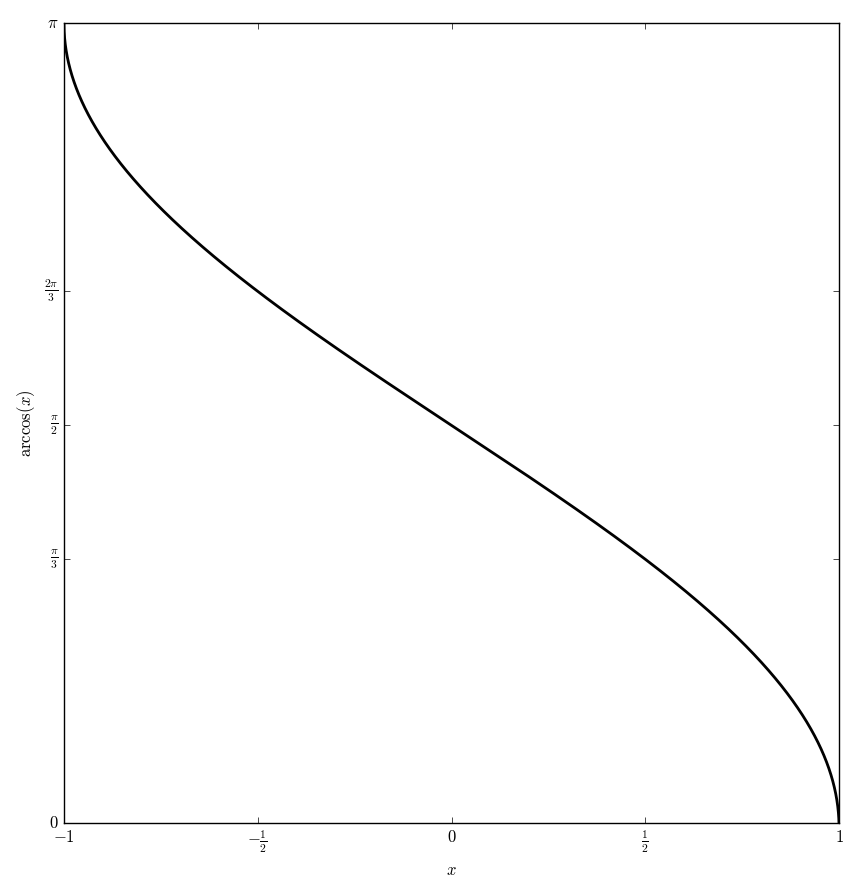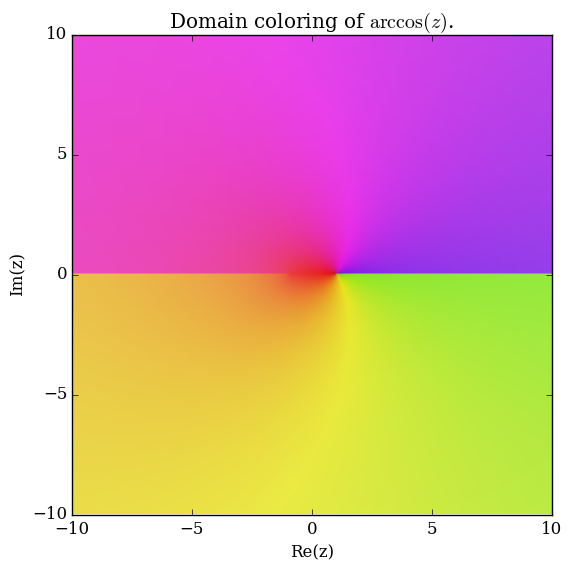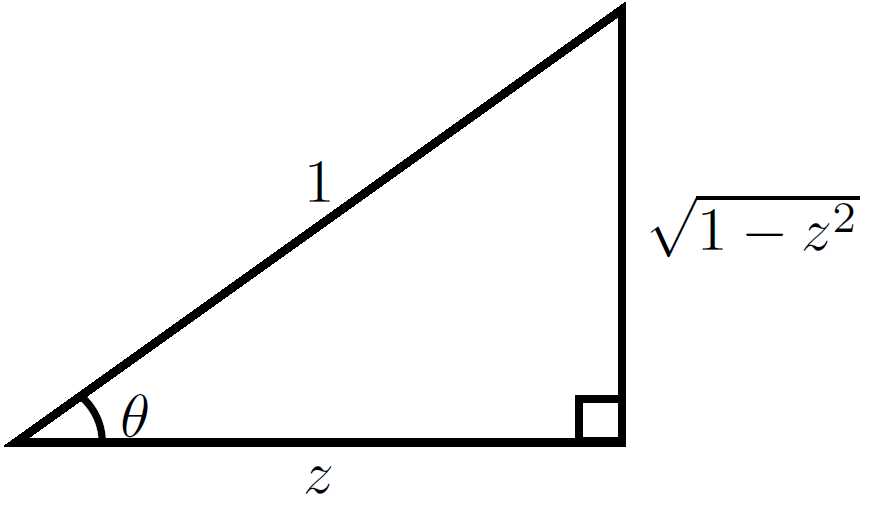Arccos
The function $\mathrm{arccos} \colon [-1,1] \longrightarrow [0,\pi]$ is the inverse function of the cosine function.
Domain coloring of $\mathrm{arccos}$.
Contents
Properties
Theorem
The following formula holds: $$\dfrac{\mathrm{d}}{\mathrm{d}z} \mathrm{arccos}(z) = -\dfrac{1}{\sqrt{1-z^2}},$$ where $\mathrm{arccos}$ denotes the inverse cosine function.
Proof
If $\theta=\mathrm{arccos}(z)$ then $\cos(\theta)=z$. Now use implicit differentiation with respect to $z$ to get
$$-\sin(\theta)\theta'=1.$$
The following image shows that $\sin(\mathrm{arccos}(z))=\sqrt{1-z^2}$:
Hence substituting back in $\theta=\mathrm{arccos}(z)$ yields the formula
$$\dfrac{\mathrm{d}}{\mathrm{d}z} \mathrm{arccos}(z) = -\dfrac{1}{\sin(\mathrm{arccos}(z))} = -\dfrac{1}{\sqrt{1-z^2}}.█$$
References
Theorem
The following formula holds: $$\displaystyle\int \mathrm{arccos}(z) \mathrm{d}z = z\mathrm{arccos}(z)-\sqrt{1-z^2}+C,$$ where $\mathrm{arccos}$ denotes the inverse cosine function and $C$ denotes an arbitrary constant.
Proof
Let $u=\mathrm{arccos}(z)$ so by derivative of arccos we know that $\mathrm{d}u=-\dfrac{1}{\sqrt{1-z^2}} \mathrm{d}z$ and let $\mathrm{d}v=1 \mathrm{d}z$ so that $v=z$. Then, integration by parts yields $$\begin{array}{ll} \displaystyle\int \mathrm{arccos}(z) \mathrm{d}z &=z\mathrm{arccos}(z) + \displaystyle\int \dfrac{z}{\sqrt{1-z^2}} \mathrm{d}z \\ &\stackrel{w=1-z^2}{=} z\mathrm{arccos}(z)-\dfrac{1}{2} \displaystyle\int w^{-\frac{1}{2}} \mathrm{d}w \\ &= z\mathrm{arccos}(z) - \sqrt{w} + C \\ &= z\mathrm{arccos}(z) - \sqrt{1-z^2} + C, \end{array}$$ as was to be shown.
References
Proposition: $\mathrm{arccos}(z)=\mathrm{arcsec} \left( \dfrac{1}{z} \right)$
Proof: █


